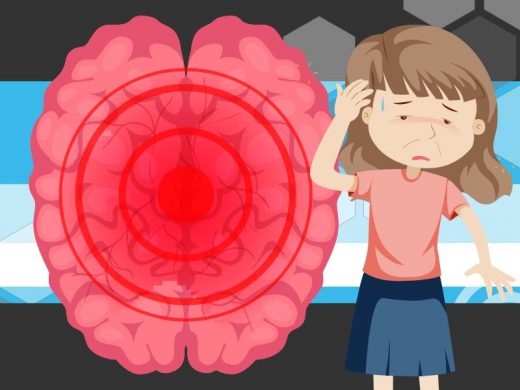
A generalized seizure starts when all areas of the brain are affected by an abnormal electrical impulse. It rapidly affects both cerebral hemispheres, and their clinical expression is consistent with substantial involvement of both sides of the brain.
Generalized seizures vary widely concerning their behavioral manifestation, from the subtle to the extreme.
Types of Generalized Seizures
- Absence seizure. It causes you to blank out or stare into space for a few seconds. Absence seizures are most common in children and do not cause any long-term problems. It often occurs due to a period of hyperventilation
- Myoclonic seizure. It is characterized by brief, jerking spasms of a muscle or muscle group along with atonic seizures.
- Clonic seizure. It is a rapid rhythmically recurrent seizure. Clonic seizures are characterized by repeated jerking movements of the arms and legs on one or both sides of the body.
- Tonic seizure. It causes a sudden tension in the muscles of the arms, legs, or trunk. Tonic seizures that occur while the person is standing may cause them to fall. After the seizure, the person may feel tired or confused.
- Tonic-clonic seizure. It involves twitching and stiffening phases of the muscle. It begins with a partial seizure or aura. You may also experience changes in sensation and mood.
- Atonic seizures. It is known as an akinetic seizure that causes a sudden loss of muscle strength.

Symptoms of Generalized Seizures
- Stiff muscles
- Groaning of crying
- Loss of consciousness
- Jerking of the arms and legs
- Trouble in breathing or stopped breathing
- Loss of bladder or bowel control
- Blue lips and sudden collapse
- Loss of muscle tone
Risk Factors of Generalized Seizures
- A family history of seizure disorders
- Brain trauma and injury
- Stroke and history of infections
- Sleep deprivation and medical problems
- Drug use and heavy alcohol abuse
- Seizures in childhood
- Head injuries
Conditions that can Trigger Generalized Seizures:

- Serious head injuries
- Brain tumor
- Stroke
- Alzheimer’s disease
- Loss of oxygen at birth
- Hardening of the arteries in the brain
How to Diagnose Generalized Seizures?
A detailed description of your seizure attack helps in diagnosing generalized seizures. Your doctor will likely need to speak to a witness who has seen your seizures. Other diagnostic methods include:
- Neurological exam
- Electroencephalogram (EEG
- Magnetic resonance imaging (MRI)
- Computed tomography or CT scan
Treatment of Generalized Seizures
Your doctor will recommend anticonvulsants to control and prevent seizures or epilepsy. Your doctor will work with you to monitor side effects and find the best treatment.









